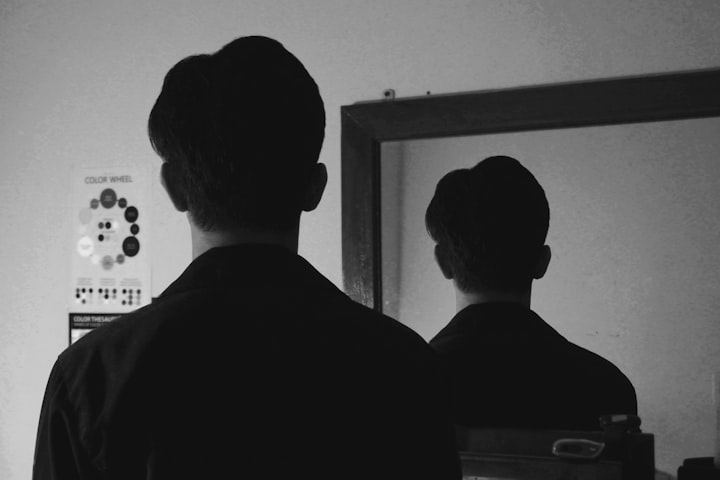Understanding Passive-Aggressive Personality Disorder: Causes, Symptoms, and Treatment Options
Understanding Passive-Aggressive Personality Disorder: Causes, Symptoms, and Treatment Options

A passive-aggressive personality disorder is a mental health condition that affects a significant number of people worldwide. It is a type of personality disorder characterized by passive resistance to demands and expectations, indirect expressions of anger and hostility, and avoidance of direct communication. In this article, we will discuss what passive-aggressive personality disorder is, its causes, symptoms, and treatment options. Additionally, we will also provide information on top psychiatrists in Mumbai and mental health tests that can help diagnose the disorder.
What is Passive-Aggressive Personality Disorder?
Passive-aggressive personality disorder is a type of personality disorder in which a person has a long-standing pattern of passive resistance to the demands and expectations of others. People with this disorder may be difficult to deal with because they often express their anger and hostility indirectly, rather than directly communicating their feelings. This can lead to feelings of frustration, confusion, and helplessness in those who interact with them.
Causes of Passive-Aggressive Personality Disorder
The causes of passive-aggressive personality disorder are not fully understood, but experts believe that a combination of genetic, environmental, and social factors may contribute to its development. Some of the common risk factors for the disorder include:
- Family history of personality disorders or mental illness
- Childhood trauma, abuse, or neglect
- Unstable or chaotic family environment
- Lack of positive role models or mentors
- Poor social skills or communication skills
- High levels of stress or anxiety
Symptoms of Passive-Aggressive Personality Disorder
The symptoms of passive-aggressive personality disorder can vary depending on the person and the severity of their condition. Some of the common symptoms include:
- Resentment and bitterness towards others
- Procrastination and avoidance of responsibilities
- Deliberate inefficiency and resistance to authority
- Indirect expressions of anger and hostility
- Chronic lateness and forgetfulness
- Blaming others for their problems or mistakes
- Sarcasm and backhanded compliments
- Denial of their own emotions and feelings
- Avoidance of direct communication
- Fear of intimacy and emotional closeness
- Inability to express their needs and desires
- Diagnosis of Passive-Aggressive Personality Disorder
Diagnosing passive-aggressive personality disorder can be challenging because the symptoms can be subtle and hard to recognize. However, a trained mental health professional can use various assessment tools and techniques to evaluate the person's behavior, emotions, and thought patterns. These may include:
- Clinical interviews
- Self-report questionnaires
- Behavioral observations
- Psychological testing
Treatment Options for Passive-Aggressive Personality Disorder
Treatment for passive-aggressive personality disorder typically involves a combination of psychotherapy, medication, and self-help strategies. Psychotherapy is the most effective form of treatment for the disorder and may include cognitive-behavioral therapy, dialectical behavior therapy, or psychodynamic therapy.
During psychotherapy, a person with passive-aggressive personality disorder can learn how to identify and express their emotions more effectively, improve their communication and problem-solving skills, and develop healthy coping strategies. In some cases, medication may also be prescribed to help manage symptoms such as anxiety or depression.
Self-help strategies such as mindfulness meditation, physical exercise, and stress management techniques can also be effective in managing the symptoms of passive-aggressive personality disorder. Additionally, support groups or online forums can provide a sense of community and help individuals feel less isolated in dealing with their condition.
Top Psychiatrists in Mumbai for Passive-Aggressive Personality Disorder
If you suspect that you or a loved one may have passive-aggressive personality disorder, it is essential to seek professional help. In Mumbai, there are several highly qualified psychiatrists who specialize in the diagnosis and treatment of the disorder.
Mental Health Tests for Passive-Aggressive Personality Disorder
If you suspect that you may have passive-aggressive personality disorder, taking a mental health test can be a helpful first step in seeking a diagnosis. There are several online mental health tests available that can assess your symptoms and provide you with feedback. However, it is important to note that these tests should not be used as a substitute for professional diagnosis or treatment. Some of the commonly used mental health tests for passive-aggressive personality disorder include:
- The Personality Diagnostic Questionnaire
- The Minnesota Multiphasic Personality Inventory
- The Millon Clinical Multiaxial Inventory
- Tips for Dealing with Passive-Aggressive Personality Disorder
Dealing with someone with a passive-aggressive personality disorder can be frustrating and challenging. Here are some tips for managing the disorder:
- Be direct and clear in your communication
- Avoid getting into power struggles or arguments
- Set clear boundaries and expectations
- Don't take their behavior personally
- Practice empathy and understanding
- Avoid reacting to their indirect expressions of anger and hostility
- Encourage them to seek professional help





Comments
There are no comments for this story
Be the first to respond and start the conversation.